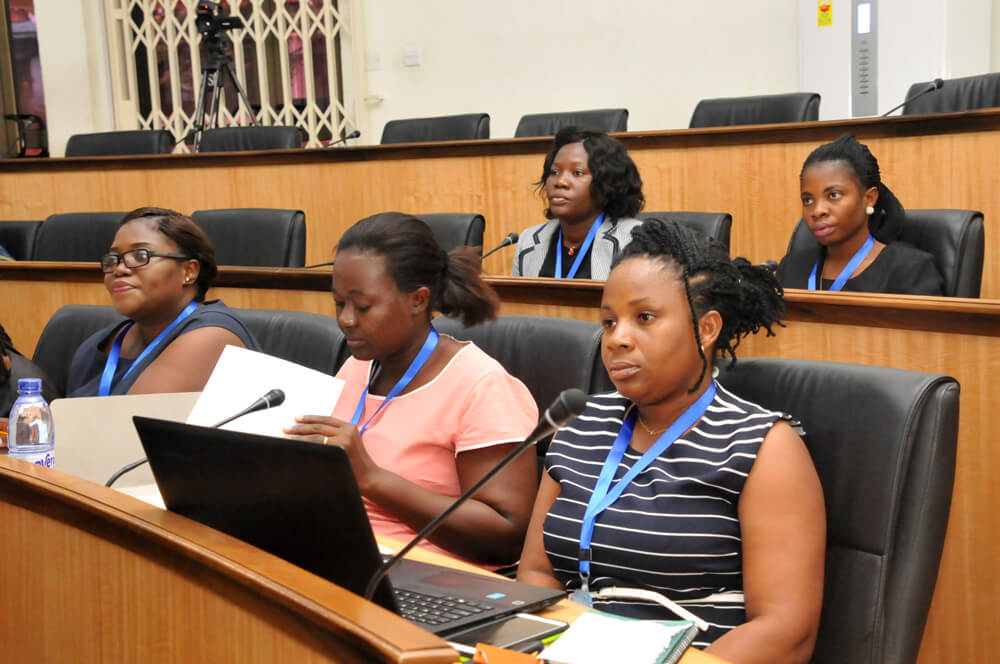The International Programmes Office (IPO) of the Vice-Chancellor’s Office, with support from the Association of Commonwealth Universities (ACU) and the Climate Impact Research Capacity Leadership Enhancement Programme (CIRCLE) has organised a two-day workshop for early female career researchers/administrators in the Kwame Nkrumah University of Science and Technology (KNUST).
Opening the Workshop, Professor Rexford Assasie-Oppong, Dean of the IPO, revealed that the workshop was funded by the ACU after he submitted a proposal to them to train female researchers as well as administrators. Professor Assasie-Oppong further said the targeted participants are all essential to the success of the research process as well as in understanding the issue of climate change. He continued that after a thorough search, he realized that earlier trainings had males as beneficiaries hence the focus on women.
Professor Robert Clement Abaidoo, Head of the Office of Grants and Research, said the University’s role in research and teaching cannot be overemphasized. The University cannot do away with research, it was therefore appropriate to train stakeholders to manage and support research as well as the University system.
He said women contribute enormously and very much concerned about climate change and further indicated that the workshop will equip them with knowledge and tools necessary for research on climate change. Professor Abaidoo, encouraged the women not to allow gender-based discrimination, harassment and domestic duties to deter then from achieving success in their career.
Professor Mrs. Ibok Oduro, Provost of the College of Science (CoS), in her presentation on “Experiences of Female Researchers & Administrators in Tertiary Education” challenged participants to strive to be national or global career women. She noted that their call to duty is a call to leadership which should be based on competence and performance.
Mrs. Oduro urged participants to work hard in spite of ardous challenges of domestic duties, being a wife and in the extended family. She stated that they will have to meet the high expectations and demands of their job in a perceived male dominated area.“You have to be twice as good as your male counterparts” she added.
She advised participants to set career goals in their lives and subject themselves to learning especially new technology and to mentor and collaborate and work with others.
Professor Mrs. Oduro also charged participants to mentor others by delegating responsibities to other female colleagues. She also advised women to manage their time effectively, work deligently and to join professional associations.
Dr. Alexander B. Marful, Lecturer at the Department of Architecture, in his presentation on “Gender, Research and Climate Change”, stated that climate change is acknowledged as a threat to our societies and in the coming years will affect most urban dwellers.
He noted that inequality limits women’s ability to adapt to the impacts of climate change. He continued that this vulnerability is exacerbated by viewing women as victims, rather than key actors who have critical knowledge of their society, economy and environment as well as practical skills which when recognized and used can be effective in adaptation.
“Women are powerful agents of change and often have unrealized solutions for adaptation and mitigation”, he stated. He said research to date suggests the vulnerability of men and women to climate change varies considerably.
Women can play a critical role in response to climate change due to their knowledge in resource management, sustainable practices at household and the community level. In that light, if policies or projects are implemented without women’s active participation, it can increase existing inequalities and decrease its effectiveness. Dr. Marful therefore advocated for more inclusion, opportunities and inclusion for women.

















